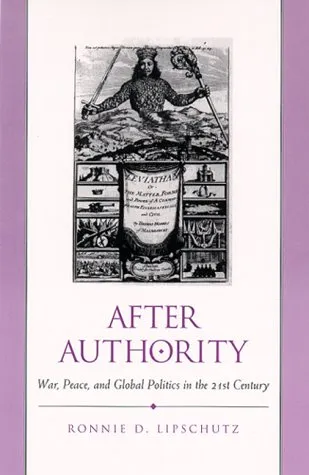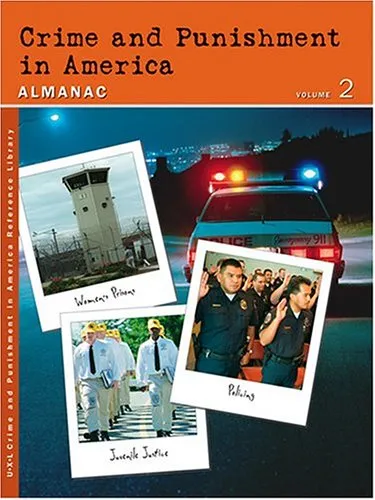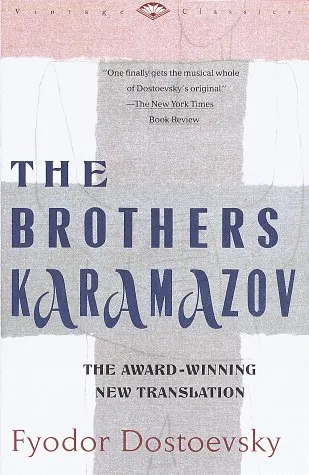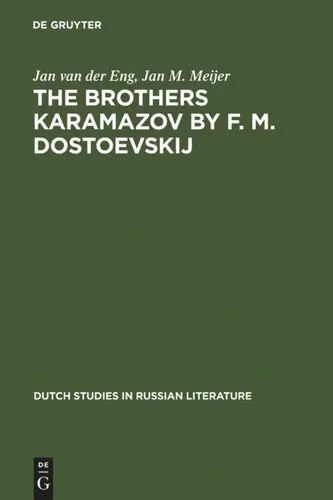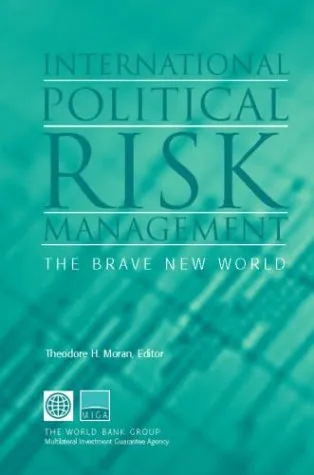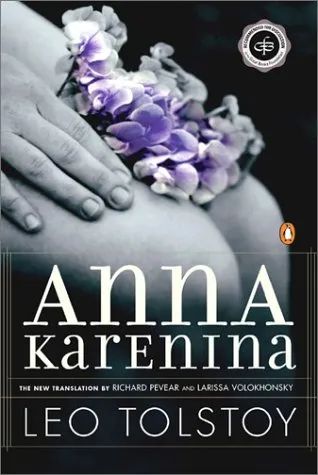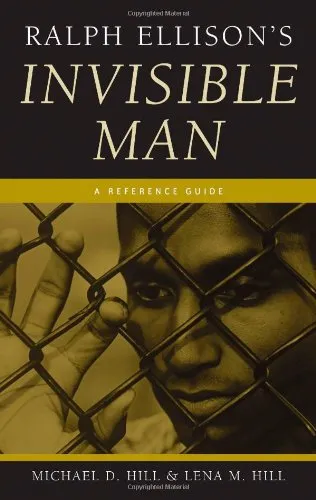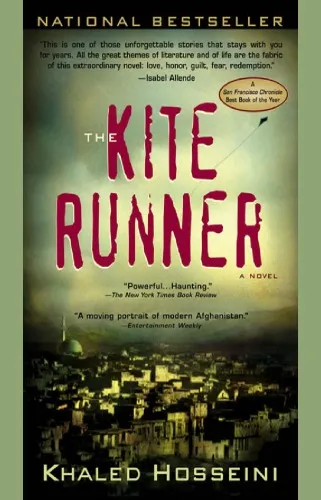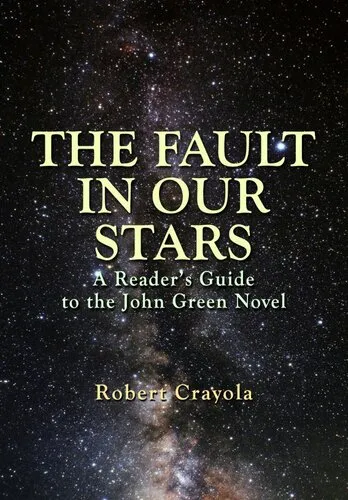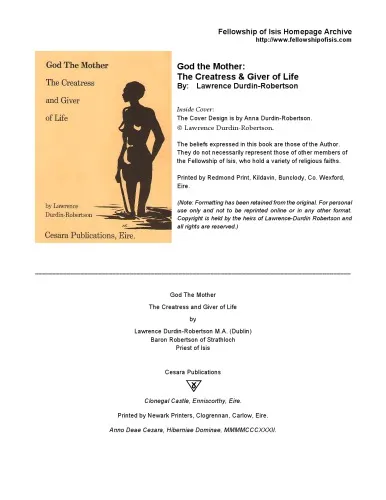After Authority: War, Peace, and Global Politics in the 21st Century
4.5
بر اساس نظر کاربران

شما میتونید سوالاتتون در باره کتاب رو از هوش مصنوعیش بعد از ورود بپرسید
هر دانلود یا پرسش از هوش مصنوعی 2 امتیاز لازم دارد، برای بدست آوردن امتیاز رایگان، به صفحه ی راهنمای امتیازات سر بزنید و یک سری کار ارزشمند انجام بدینکتاب های مرتبط:
معرفی کتاب 'After Authority: War, Peace, and Global Politics in the 21st Century'
کتاب 'After Authority: War, Peace, and Global Politics in the 21st Century' نوشته رونالد دی. لیپشوتز به بررسی تغییرات اساسی در سیاستهای جهانی و روابط بینالملل در قرن بیست و یکم میپردازد. این کتاب با نگاهی عمیق به مفاهیم جنگ و صلح، چالشهای جدیدی را که نظام بینالمللی با آنها روبروست، تحلیل میکند.
خلاصهای از کتاب
رونالد دی. لیپشوتز در این کتاب به تحقیق در مورد وضعیت کنونی Global Politics پرداخته و سعی میکند تا تحولی که در مفهوم Authority رخ داده است را توضیح دهد. او با بررسی نهادها و سازوکارهای قدرت، نشان میدهد چگونه ابزارهای قدیمی کنترل و نفوذ دیگر کارایی پیشین را ندارند و بازیگران جدیدی در تعاملات جهانی وارد صحنه شدهاند. با این حال، تغییرات به همین سطح خلاصه نمیشود و سوالات جدیدی نیز پیش میآید: چگونه میتوان بین قدرتهای بزرگ و منافع مشترک جهانی توازن ایجاد کرد؟
نکات کلیدی
- تحلیل روند تغییر مفاهیم قدرت و Authority در روابط بینالملل.
- بررسی چالشهای جدید پیش روی Peacebuilding در دوران معاصر.
- نقش نهادهای فراملیتی در شکلگیری سیاست جهانی جدید.
- ارتباط میان تحولات سیاسی و اجتماعی با تغییرات اقتصادی و تکنولوژیکی.
نقلقولهای معروف از کتاب
"قدرت دیگر نه به عنوان وسیلهای برای کنترل، بلکه به عنوان فرصتی برای همکاری و ایجاد یک نظم پایدار جهانی تلقی میشود."
"در قرن بیست و یکم، هر لحظه به یک نقطه عطف در تاریخ تبدیل شده و جهانی شگفتانگیز در حال شکلگیری است."
اهمیت این کتاب
این کتاب برای دانشجویان و علاقهمندان به مطالعات بینالملل، سیاستگذاری و Global Politics بسیار ارزشمند است، زیرا نشان میدهد چگونه قدرت و Authority در حال بازتعریف هستند. با خواندن این کتاب، مخاطبان میتوانند درک عمیقتری از تعامل میان بازیگران دولتی و غیردولتی پیدا کرده و به تحلیل دقیقتری از مسائل جهانی برسند. به علاوه، این کتاب به سیاستگذاران کمک میکند تا پویاییهای جدید زمانه را بهتر درک کرده و برای چالشهای پیش رو آمادهتر باشند.
In "After Authority: War, Peace, and Global Politics in the 21st Century," author Ronnie D. Lipschutz delves into the intricate dynamics of power, governance, and conflict in the contemporary world. As we navigate a complex global landscape marked by changing political allegiances, shifting centers of power, and evolving notions of sovereignty, Lipschutz provides a critical framework for understanding these transformations. This book offers a nuanced perspective on the state of global politics beyond the traditional paradigms of authority and explores the multifaceted meanings of security and peace in a rapidly changing world.
Detailed Summary of the Book
"After Authority" begins by questioning the conventional wisdom surrounding political authority and state sovereignty. The book challenges the traditional notion that nation-states are the sole arbiters of authority in global affairs. Lipschutz argues that, in many ways, global politics has shifted away from a centralized, authoritative structure to a more fragmented and decentralized system. He examines how globalization, technological advancements, and transnational networks have led to the rise of non-state actors who wield significant influence over global politics.
The book further explores the paradoxes of contemporary war and peace. Lipschutz meticulously outlines how the line between war and peace has become blurred, with conflicts often occurring within states rather than between them. He discusses the implications of this shift for international relations and the traditional practices of diplomacy. At the same time, he emphasizes the importance of understanding peace as not merely the absence of war but as a complex set of conditions that promote stability and justice.
Throughout the book, Lipschutz uses a variety of case studies to illustrate his points, from the impact of transnational corporations to the role of international organizations and networks in global governance. By drawing on a wide array of examples, he provides a comprehensive outlook on the current state of international affairs.
Key Takeaways
- Global politics is increasingly characterized by decentralized authority and the influential roles of non-state actors.
- The traditional notions of war and peace are evolving, with conflict often manifesting in non-traditional forms.
- Peace involves creating conditions that support justice and stability, beyond simply preventing conflict.
- The interplay between globalization and technology significantly influences global governance structures and outcomes.
Famous Quotes from the Book
"Authority in the 21st century is less about command and control and more about negotiation and consensus."
"Peace is a process, not a condition; it requires nurturing and commitment beyond the absence of visible conflict."
"In an interconnected world, power often lies less in force and more in influence and persuasion."
Why This Book Matters
"After Authority" is an essential read for those seeking to grasp the complexities of global politics in the modern era. Lipschutz's insightful analysis encourages readers to think critically about the nature of authority, conflict, and peace. His emphasis on the interconnectedness of global actors provides a fresh perspective on how we might navigate future challenges in international relations.
This book is particularly relevant for political scientists, international relations scholars, and policymakers who are working to shape the future of global governance. It equips readers with a framework to understand the shifting paradigms of power and the necessity for innovative approaches in addressing international security issues.
By questioning established norms and exploring alternative conceptions of authority, "After Authority" provides readers with the intellectual tools necessary to engage critically with the challenges and opportunities that the 21st century presents.
دانلود رایگان مستقیم
شما میتونید سوالاتتون در باره کتاب رو از هوش مصنوعیش بعد از ورود بپرسید
دسترسی به کتابها از طریق پلتفرمهای قانونی و کتابخانههای عمومی نه تنها از حقوق نویسندگان و ناشران حمایت میکند، بلکه به پایداری فرهنگ کتابخوانی نیز کمک میرساند. پیش از دانلود، لحظهای به بررسی این گزینهها فکر کنید.
این کتاب رو در پلتفرم های دیگه ببینید
WorldCat به شما کمک میکنه تا کتاب ها رو در کتابخانه های سراسر دنیا پیدا کنید
امتیازها، نظرات تخصصی و صحبت ها درباره کتاب را در Goodreads ببینید
کتابهای کمیاب یا دست دوم را در AbeBooks پیدا کنید و بخرید
1386
بازدید4.5
امتیاز0
نظر98%
رضایتنظرات:
4.5
بر اساس 0 نظر کاربران
Questions & Answers
Ask questions about this book or help others by answering
No questions yet. Be the first to ask!
